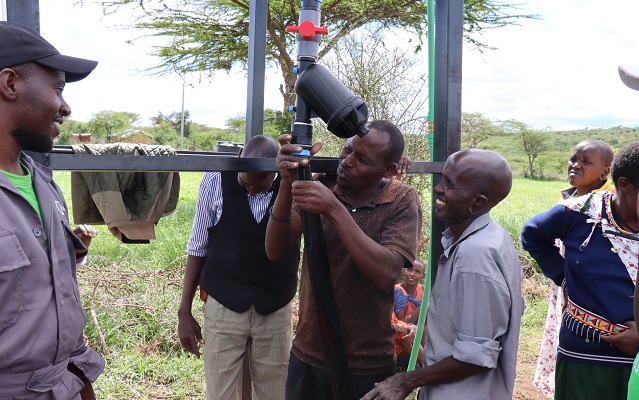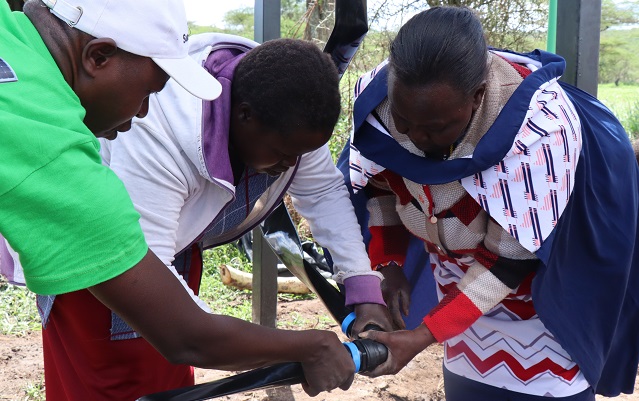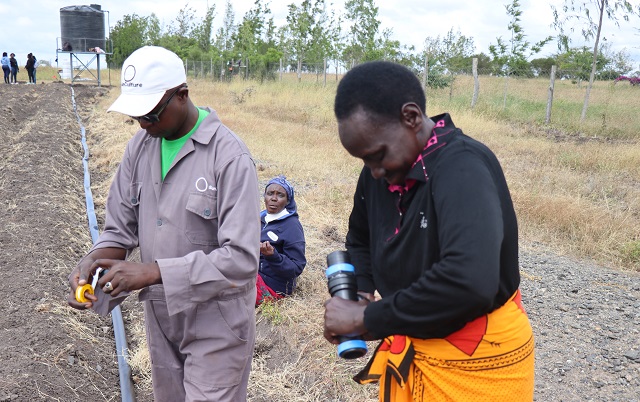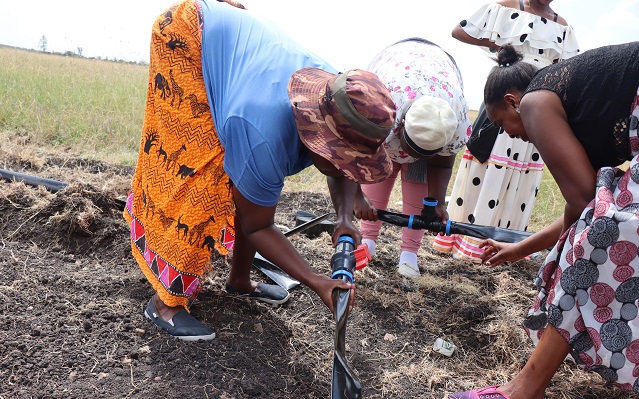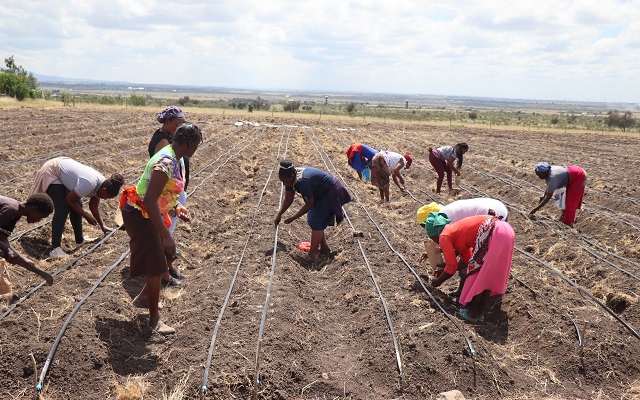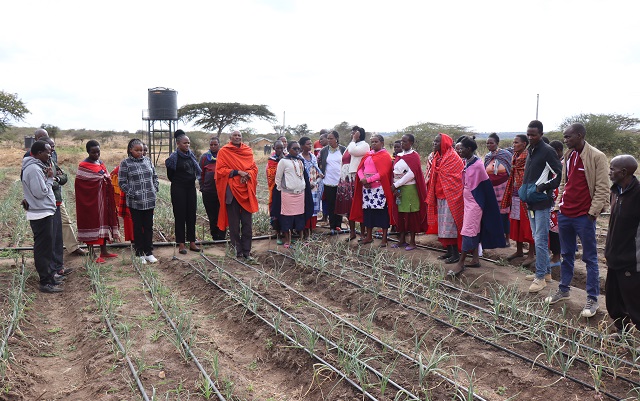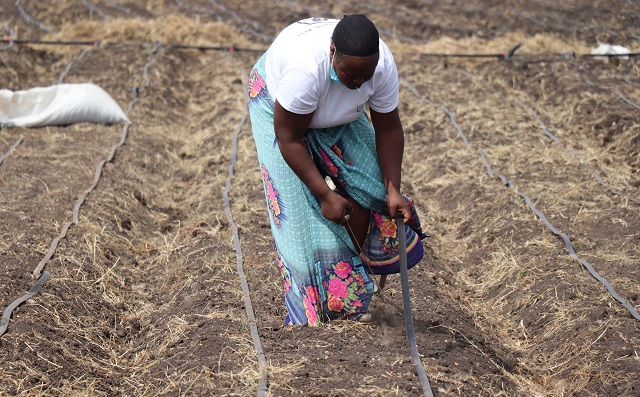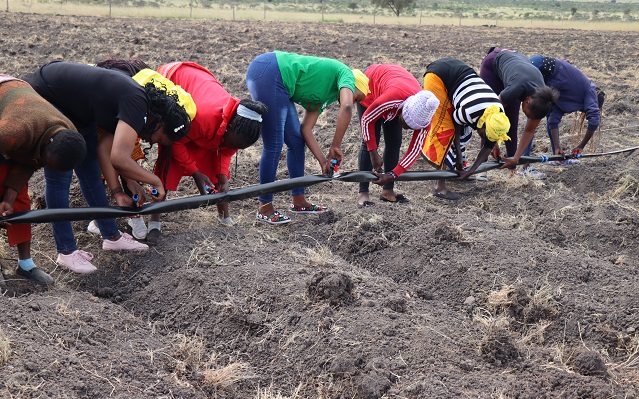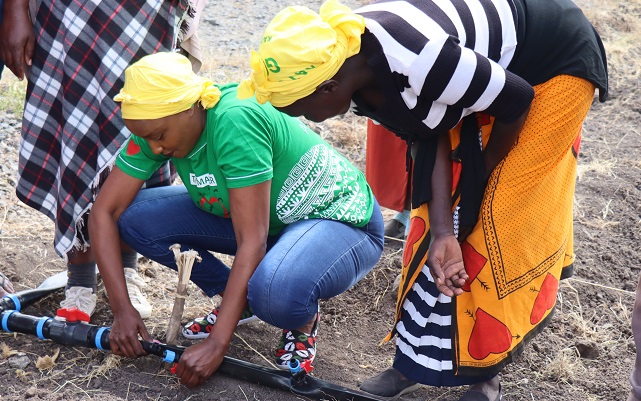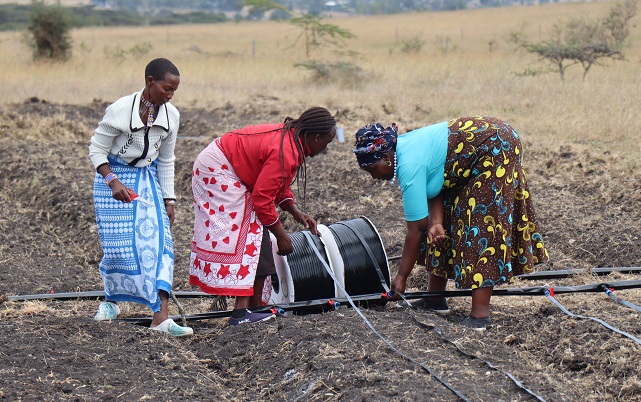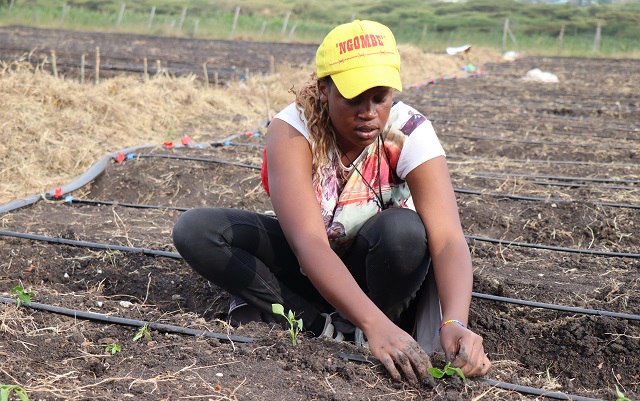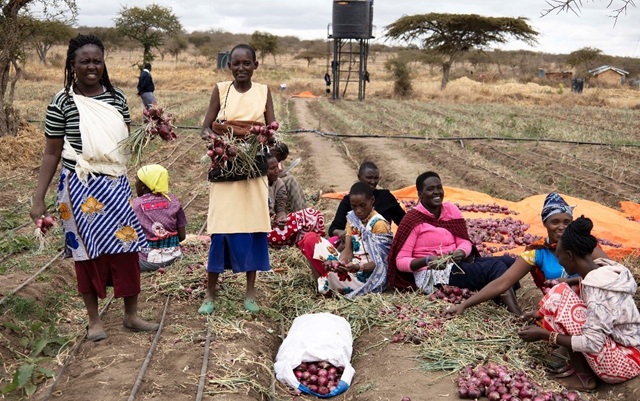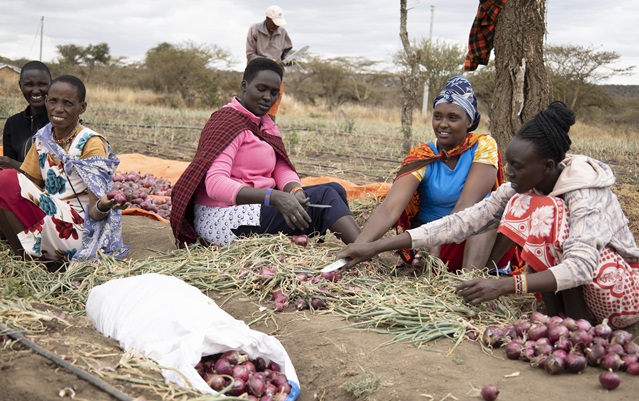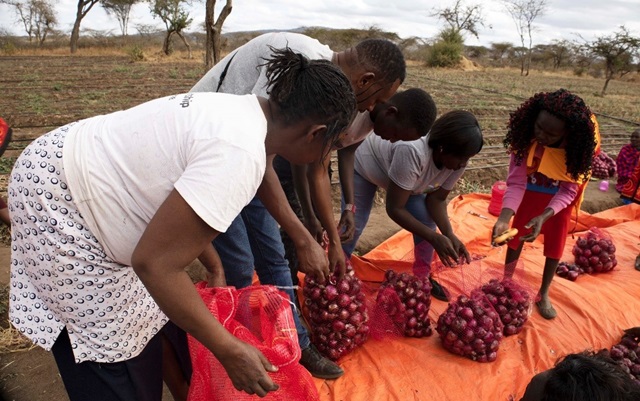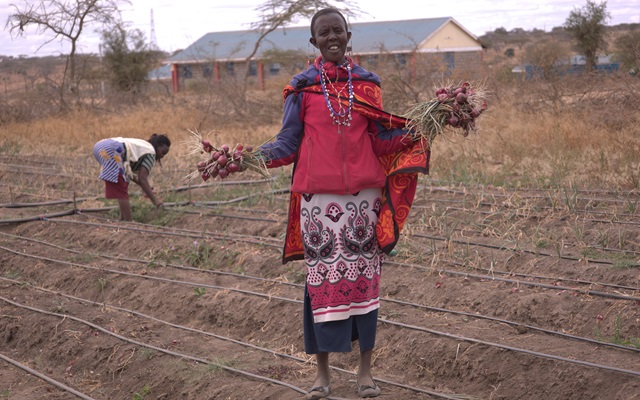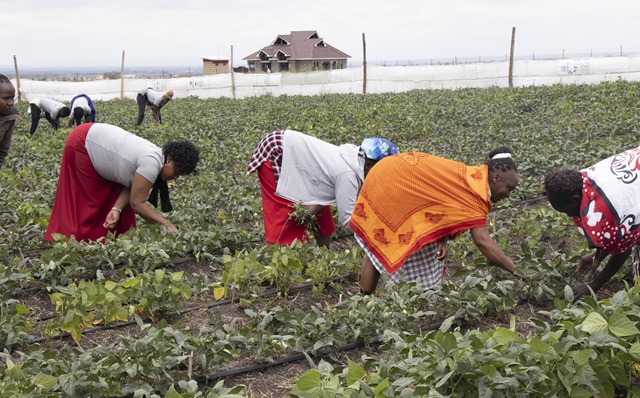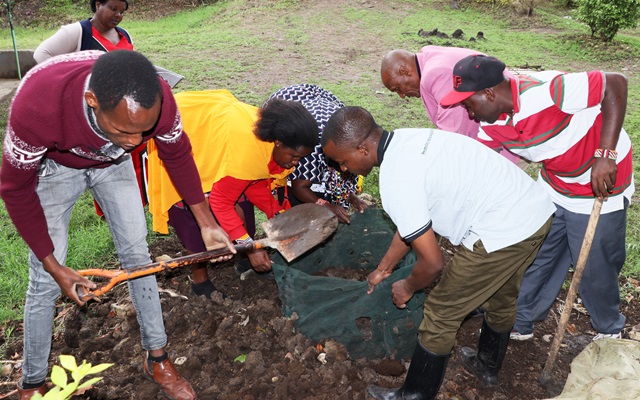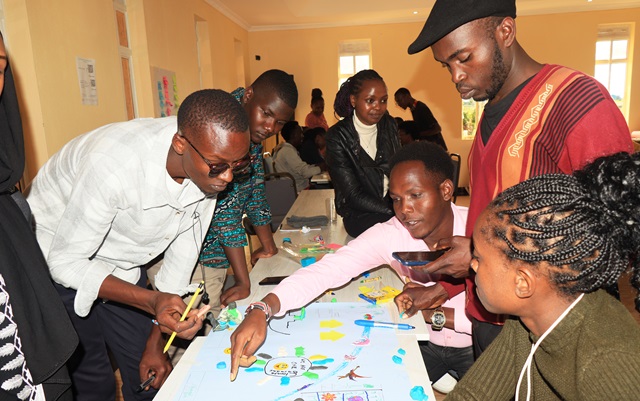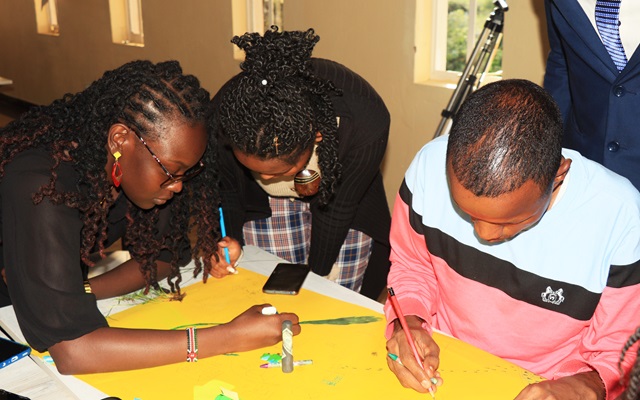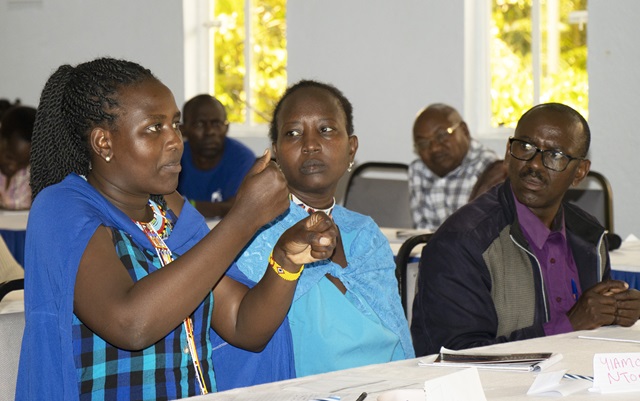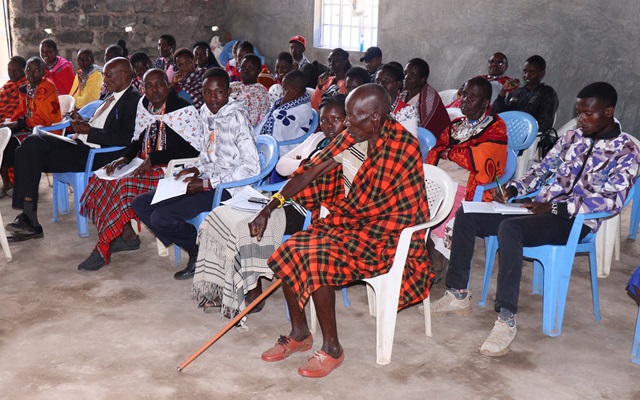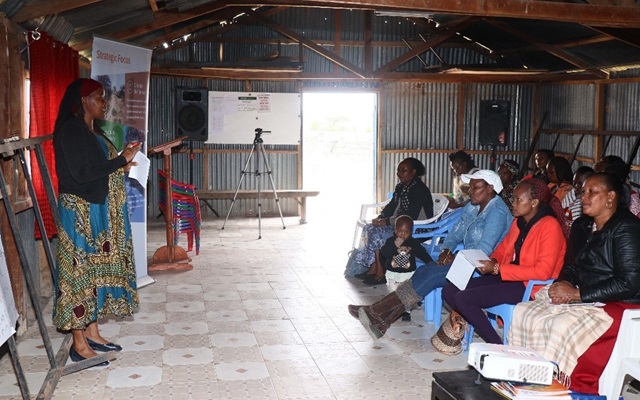Powered by the sun: climate-smart irrigation systems in Kajiado County
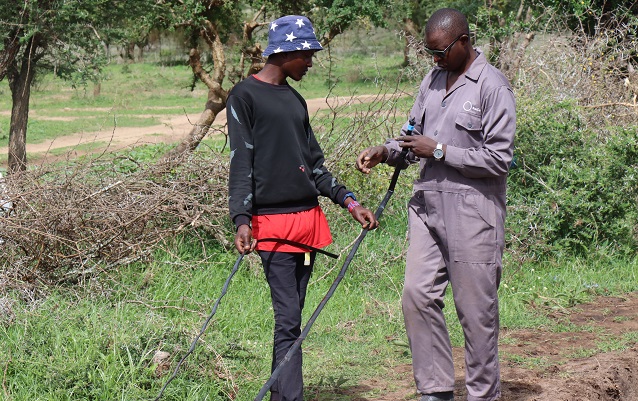
Kenya’s agriculture sector is 98 per cent rain-fed and therefore highly vulnerable to climate change. Yet, most farmers who have opted for irrigation rely primarily on furrow or basin irrigation, which does not provide efficient water use. It also causes emissions because usually diesel generators are used. The IKI Small Grants project aims to promote the adoption of climate-smart, solar-powered irrigation systems in Kajiado County to improve food security and community resilience to the impacts of climate change. It further advocates for the adoption of solar water pumps on a wider scale. Trainings on the maintenance and reparation of water pumps for small-scale farmers are accompanying the project activities.
INITIAL SITUATION
Kajiado County is highly vulnerable to climate change. While climate hazards are common in the county with a history of devastating droughts since the 1900s, they are becoming more frequent. Irrigation used by farmers is mostly inefficient and causes high emissions due to the use of diesel generators. Switching to solar-powered irrigation systems therefore reduces greenhouse gas emissions and simultaneously increases farmers’ income, food production, and resilience.
TARGET GROUP
The project directly benefits 360 households of smallholder farmers organised in three farmer groups in Kajiado West, East and North Sub County. Additionally, 30 non-state actors working on climate change and biodiversity related issues are integrated in project activities.
APPROACH AND ACTIVITIES
The IKI Small Grants project trains farmers to practice climate-smart agriculture. It mobilises three farmer groups, each growing nutritious food on one hectare of land. These three farmer groups are trained to install and manage solar-powered water pumps and drip irrigation systems. The project also trains farmers in the use of appropriate and innovative technologies for climate-smart agriculture. These include the use of drip irrigation, improving soil fertility, integrated pest and disease management, the introduction of drought-tolerant crops and the use of agroforestry. ALIN organises workshops to further build farmers’ capacity for efficient water use and sustainable water resource management. Nine field days are facilitated to improve the knowledge transfer on climate-friendly, solar-powered irrigation systems among farmers.
To promote adoption of climate smart agriculture in Kajiado County, the organisation holds 13 monthly talk shows and radio features on community radio. It further advocates for an increased budgetary allocation from Kajiado County government for climate smart agriculture. To further enhance the capacity of non-state actors to advocate and promote climate change and biodiversity issues, the project includes 14 monthly learning and consultative forums of Kajiado County government and non-state actors.
LATEST PROJECT HIGHLIGHTS AND IMPACTS
- 384 farmers (233 women) trained on climate smart agriculture
- Capacity of 38 journalists on agriculture and climate change built
- Strengthened the Kajiado Climate Smart Agriculture Multi-Stakeholder Platform
- 90 farmers and 1 school adopted solar powered drip irrigation
- 119 farmers (98 women) trained on group dynamics, gender mainstreaming, and agri-business
- 2 advocacy meetings carried out on the Kajiado County Climate Change Fund and County Water Policy
- 6 non-state actors learning and consultative forums held
CAPACITY DEVELOPMENT
IKI Small Grants supports ALIN in their organisational capacity development through:
- Training in resource mobilisation (county, national and international funding options)
- Training in monitoring and evaluation
- Introduce results-oriented performance management system
ABOUT THE ORGANISATION
Arid Lands Information Network (ALIN) is a non-governmental organisation registered in Nairobi that was founded in 1987. Its mission is to improve the livelihoods of communities in East Africa through the delivery of practical and usable information using information and communication technologies. ALIN has over 20 years of experience working on sustainable development issues by providing a grass root link to policy matters in addition to empowerment activities. The organisation has championed the use of information and communication technologies to empower farmers with usable information and knowledge to improve their livelihoods.

